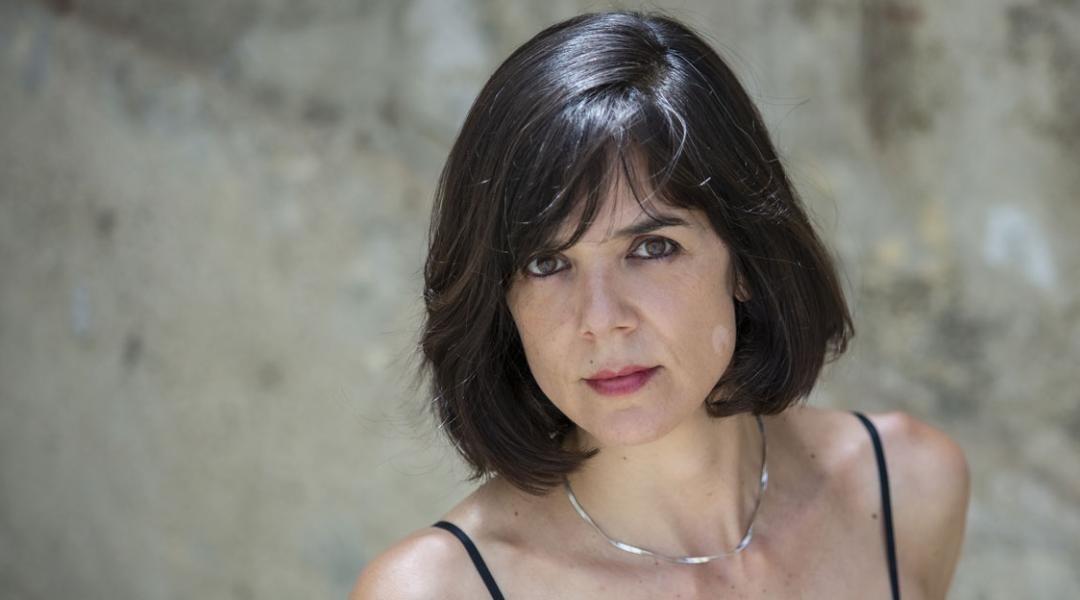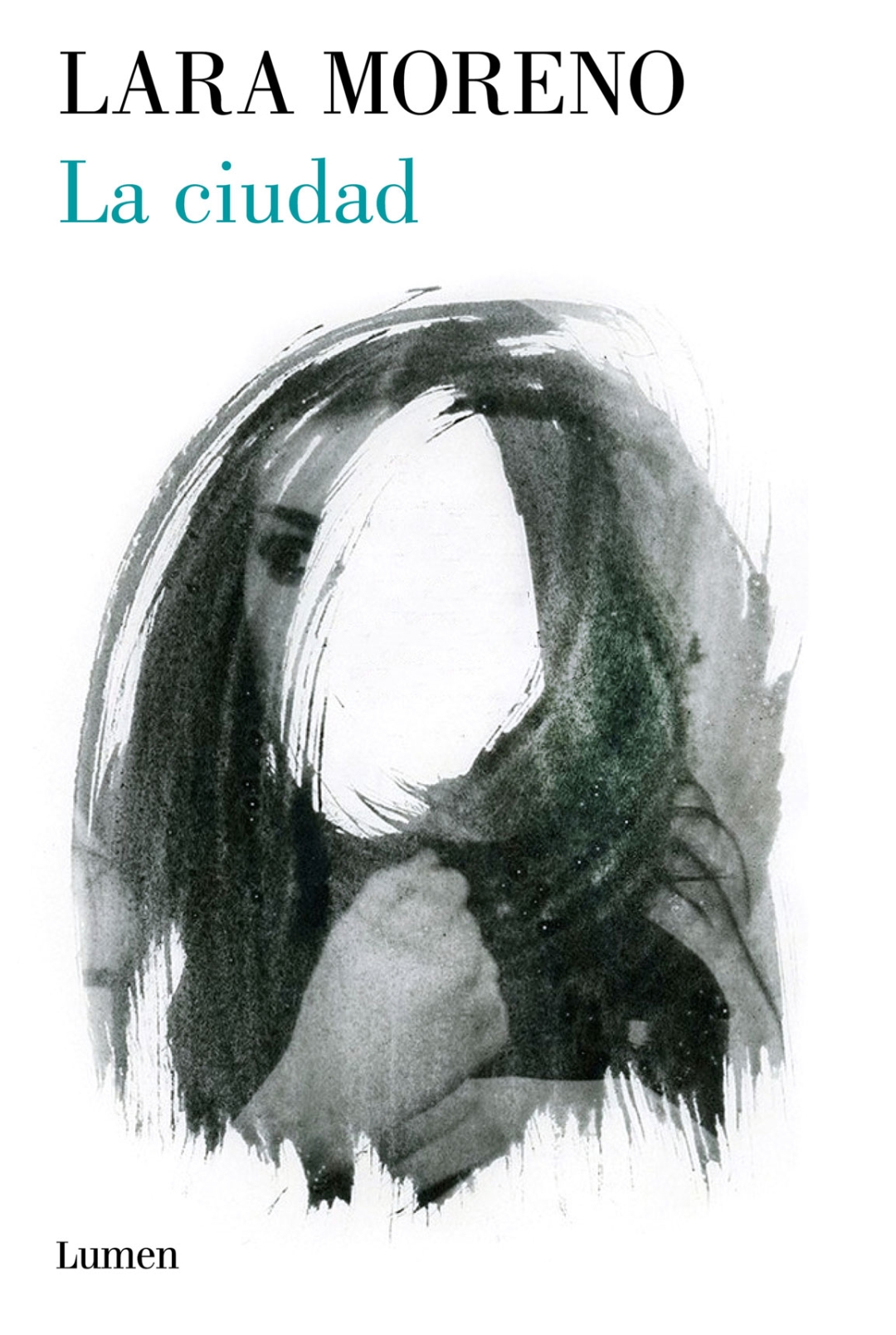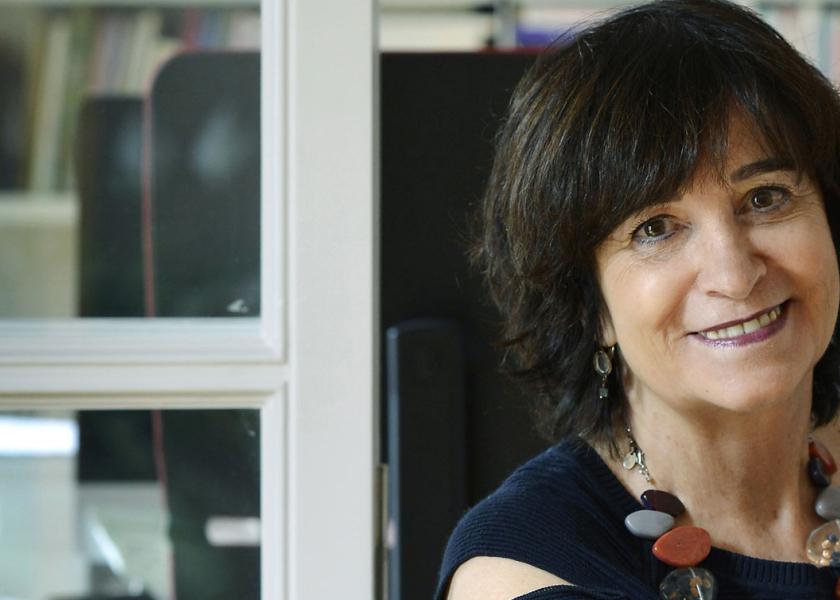Lara Moreno
Women in the city

‘La ciudad’ is Lara Moreno’s new novel. And Oliva, Damaris, and Horía are the three women who inhabit its pages, three names bound to three unforgettable stories, consolidating this Andalucian writer as one of the main female voices in modern Spanish literature. Because, as she herself defends, the time has come to read women, for justice.
Oliva, Damaris, and Horía are the protagonists of La ciudad. Three women who, despite inhabiting the same building, watch each other but don’t see each other. They open the door to the same entrance hall, use the same lift and walk along the same landings, but are invisible to one another. Each of them carries the weight of different worries, regrets, and grief alone. Why don’t they support each other? The answer to this question beats in the heart of the third novel by Lara Moreno (Seville, 1978), which, unlike her previous work, is set in a major city: Madrid. A city that the author uses to reveal the defects of a society that tends to divide us instead of bringing us together. Ten years after receiving the Cosecha Eñe Award and being named New Talent Fnac of Literature, the Andalucian asserts herself as one of the great female voices of her generation.
Before focusing on your new novel (La ciudad), I want to know how Lara the writer was born.
I started reading at a really early age and, to be honest, the drive to write always comes from reading. What I loved the most was reading, I used to do it for hours on end. When I published my first book, a memory came to the forefront: myself at the age of nine, saying I wanted to be a writer. My aunt later confirmed that it was real. So, I’ve always had a close connection to reading and writing.
Your writing has been compared to Julio Cortázar’s, but who have been your literary role models?
I think this is one of the most difficult questions I get asked... Luckily, the list is constantly being updated. Cortázar, as well as being a very catchy writer, had a big impact on my first short story collection. At the time, I read a lot of popular Latin-American authors, but also Spanish writers like Juan Marsé or Mercè Rodoreda. In my thirties, I started to read more women, also because the market opened up, like poet Blanca Varela, and right now I’m in love with Montserrat Roig, who I’m just discovering because almost all her work was discontinued. Not to mention Mexican Emiliano Monge, one of my favourite writers.
“I started reading at a really early age and, to be honest, the drive to write always comes from reading”
The lives of the three women who feature in La ciudad are very different, but what do they have in common?
To be honest, they don’t have much in common apart from sharing the same urban landscape, which is Madrid in this case. They also share a building, but the way the three of them inhabit it defines what brings them together and draws them apart. Only one of them, Oliva, who is a Spanish, really lives in the building. Damaris is Colombian and works there taking care of children, which is really different; and Horía, an illegal Moroccan immigrant, lives there temporarily, hidden in the caretaker’s shack as payment for her cleaning services and in fear of being taken by the police at any time.

‘La ciudad’, Lara Moreno’s latest novel. © Lumen
Despite sharing space and time, why doesn’t sorority grow between them?
No, there’s no female solidarity between them. The three of them have their own networks, but they’re like most people’s: horizontal. They occupy different steps within a social hierarchy, so they can’t help each other because they don’t really see each other. At the beginning I fantasised with the idea of them needing each other, but I realised that it wasn’t plausible because in real life, when we inhabit different socioeconomic spaces, we don’t usually look at or help each other.
Until La ciudad, your characters moved within rural areas; why did you decide to set this story in a major city like Madrid?
It’s a challenge I set myself. When I finished writing my previous book, Piel de lobo, I decided to look at the city I’ve been living in for so long and that conditions my life so much. Madrid deserves a novel, for both the good and the bad. It’s a city with as many realities as residents and it allowed me to show how we’re socially organised —in terms of economics, employment, and humanity— and our virtues and shortcomings as a society.
“Madrid is a city with as many realities as residents and it allowed me to show our virtues and shortcomings as a society”
Immigrants represent more than 10% of the population in Spain, but fiction never reflects this. Your novel is an exception. Why shine a light on this?
Precisely for this reason. The reality is that we turn our backs on that 10% of society. It also comes from a personal realisation: how do we behave towards people who come to our country to make a living, often fleeing real horror? When I decided to look at the city from a narrative perspective, I thought that I couldn’t talk about the centre of Madrid without talking about immigration.
Last October you were at the Frankfurt Book Fair, where Spain was the guest country. After having that first-hand experience, why do you think Spanish literature has such a tough time transcending our borders?
Firstly, English has always colonised the translation market. That is, I’m not sure if it’s a problem with Spanish, or rather that English doesn’t leave much room; in fact, I think there are other languages in the same situation. In the end, because of how the publishing industry works, most editors read in English.
“The fact that the female gaze has been ostracised in most areas is one of the greatest injustices in the history of humanity”
If I say the word talent, what comes to mind?
It’s nice to think that talent is a gift, but I think that we’d only know how much of a gift lies within the word talent if we lived in a truly equal society or rather if, like most things, it depends on the postcode you were born in.
Female talent has always been present in literature but, as you were saying earlier, many more books written by women are published now. Is the publishing industry late?
Centuries late. Women, and female writers in particular, have been denied space for centuries. The fact that the female gaze has been ostracised in most areas is one of the greatest injustices in the history of humanity. So, we must read women, firstly, for justice.


